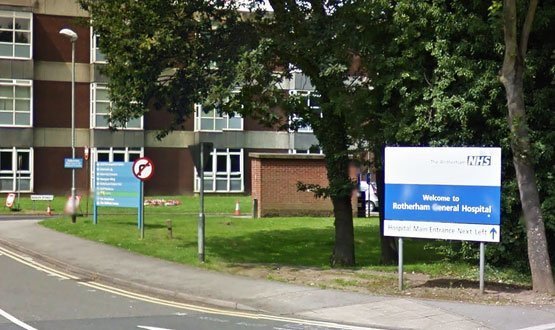Rotherham gets £12m Digital Aspirant funding for ‘join the dots’ approach
- 28 January 2021

Health and care organisations in Rotherham have received £12million for a “join the dots” approach under the Digital Aspirant programme.
Rotherham is the only area to receive funding on a place-based approach which will focus more on partnerships and levelling up all of health and care rather than boosting the digital maturity of one organisation.
Rotherham NHS Foundation Trust, Rotherham, Doncaster and South Humber Foundation Trust, Rotherham Metropolitan Borough Council, charity Voluntary Action Rotherham, along with acute, community, hospice, primary care services are set to benefit from the funding.
James Rawlinson, director of health informatics at Rotherham NHS Foundation Trust, told Digital Health News the programme was about finding better ways to deliver joined up care.
“We want to try and join all the dots up together. It’s not just about traditional providers and communities but a true partnership approach,” he said.
“As well as doing the tech stack and systems type stuff we’re also very keen to explore utilising information across the whole Rotherham place, which feeds into population health management.
“It’s not just about the tech and the systems, it’s about the information enabling change in care.”
Building the work undertaken for Rotherham.care, the Rotherham shared care record, the area-wide programme seeks to further integrate with the Yorkshire and Humber Care Record.
The programme will also focus on digital exclusion, working with charities and the borough council to address digital divides within the community.
Further enhancement of digitisation across the area will help reduce duplication and streamline workflows for staff, improve access to information and contribute to population health management, Rawlinson said.
“When organisations operate in silos on their own then you can’t help but create duplication of efforts,” he added.
“It makes no sense to have one digitally advanced organisation in a swamp of less digitally advanced organisations.
“Our patients and staff don’t necessarily follow organisation boundaries. The idea is being able to interchange and exchange information across organisation boundaries seamlessly.”
The funding is provided for three years under the NHSX Digital Aspirant programme, now in its second year.
The programme was announced by health secretary Matt Hancock in December 2019 with the aim to raise the bar across the NHS by making sure organisations have a core set of digital capabilities in place.
Digital Health News exclusively revealed in March 2020 the 23 trusts selected in the first wave of the programme.
The trusts were set to benefit from £28 million between them in the first year with funding put towards digital transformation programmes to enable them to provide safe, efficient care.
Rotherham plans to blueprint the work done as an area-wide Digital Aspirant to enable other areas to implement programmes.
Rawlinson and colleagues will be speaking at Digital Health Rewired about their work as an area-wide Digital Aspirant.
To find out more about Rewired, the keynote speakers and sessions on offer visit digitalhealthrewired.com




